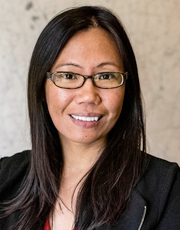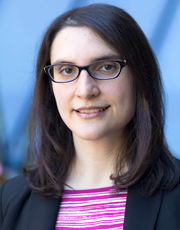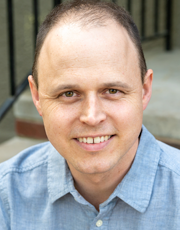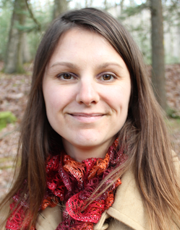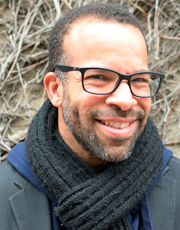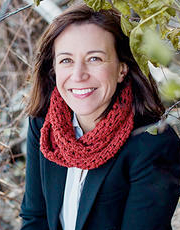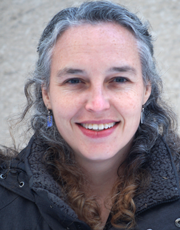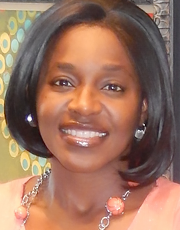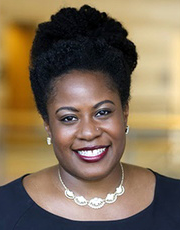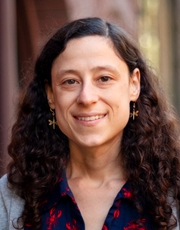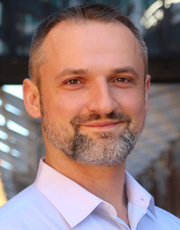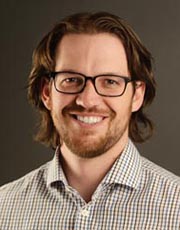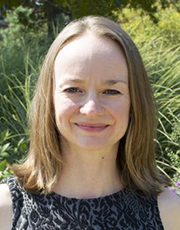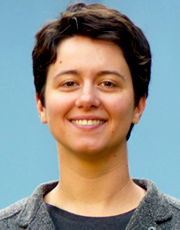The McKnight Presidential Fellows Program is a three-year award given to the most promising individuals who have been granted both tenure and promotion to associate professor in an academic year. It recognizes recipients who are recommended by their college dean and chosen at the discretion of the executive vice president and provost based on excellence in research and scholarship, leadership, potential to build top-tier programs, and ability to advance University of Minnesota priorities.
Congratulations to the 2024 Award Recipients
Congratulations to the 2024 Award Recipients
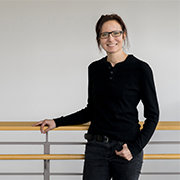
Kate Adamala
Genetics, Cell Biology & Development
College of Biological Sciences, Twin Cities
Synthetic cell engineering
Kate Adamala is a biochemist working on engineering synthetic cells. Her research aims at understanding chemical principles of biology, using artificial cells to create new tools for bioengineering, drug development, and basic research. Kate’s research spans questions from the origin and earliest evolution of life, using synthetic biology to colonize space, to the future of biotechnology and medicine.
Kate also works on biosafety and biosecurity implications of synthetic biology. She is a Polymath Fellow of the Geneva Center for Security Policy, and a coordinator of the international synthetic cell engineering community Build-a-Cell.
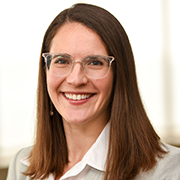
Dana Mowls Carroll
Environmental Health Sciences
School of Public Health, Twin Cities
Addressing commercial tobacco-related health disparities in Minnesota and beyond
Dana Mowls Carroll researches ways to help people quit commercial tobacco use with a particular focus on working with American Indian and rural populations. Reflecting the interests of her community partners, she applies methodologies ranging from secondary data analyses to qualitative research and clinical trials. She also contributes to the evidence base on potential cigarette product standards, such as reducing levels of nicotine; which is another avenue for addressing commercial tobacco use disparities. In 2023, her contributions to co-creating smoking cessation resources for American Indian persons were highlighted by the White House as part of the Biden-Harris Administration’s Cancer Moonshot Agenda to end cancer.
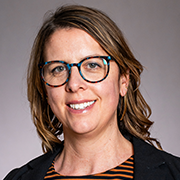
Gretchen Hansen
Fisheries, Wildlife & Conservation Biology
College of Food, Agricultural & Natural Resource Sciences, Twin Cities
Understanding and managing freshwater ecosystems in a changing world
Gretchen Hansen studies freshwater ecosystem responses to environmental change. Her work is interdisciplinary and spans from local to global scales. She leverages mechanistic understanding of biological and physical processes to inform large-scale landscape predictions of lake and fish responses to climate change, species invasions, and other stressors. She frequently partners with management agencies and environmental groups to identify local management responses that can influence lake responses to global change. Dr. Hansen disseminates her work through peer-reviewed journals as well as through public-facing web tools, and has been widely covered by the popular press.
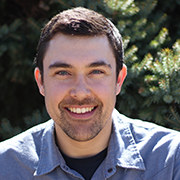
Jacob Jungers
Agronomy & Plant Genetics
College of Food, Agricultural & Natural Resource Sciences, Twin Cities
Diversifying crops to improve agricultural sustainability
Nearly 80% of global farmland is dedicated to growing just five crops. While the incredible productivity of these crops is crucial to feeding the world and supporting global economies, farming practices to cultivate them can negatively impact the natural environment. Dr. Jungers and his research group are helping develop new crops and farming strategies that improve agricultural output, economic viability, and environmental sustainability.
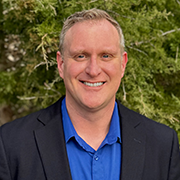
Peter Larsen
Veterinary & Biomedical Sciences
College of Veterinary Medicine, Twin Cities
Neurodegenerative disease diagnostics and field-based genomics
Peter Larsen is a molecular biologist who leads an interdisciplinary research team spanning several colleges and departments across the university. He is Co-Director of the Minnesota Center for Prion Research and Outreach and has spearheaded an effort to develop new diagnostic tools for animal and human prion diseases. This work has resulted in the development of an exciting new class of portable tools that can detect biomarkers for several neurodegenerative diseases. Dr. Larsen also specializes in studies of mammalian biodiversity and zoonotic disease surveillance. His latest work in this area brings cutting-edge genomic tools out of the lab and into the field for real-time species discovery and pathogen surveillance.
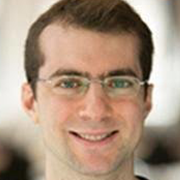
William Leeb
Mathematics
College of Science & Engineering, Twin Cities
Robust and efficient algorithms for corrupted data
William Leeb researches the design and analysis of efficient algorithms that are robust to corruption of the input data. Sources of corruption can include missing values, geometric perturbations, noise, and other types of information loss. Datasets with these challenges are encountered across numerous domains, from structural biology to image processing. His research program includes the development of new tools from multiple branches of mathematics, including harmonic analysis and random matrix theory, and has led to fundamental contributions to the problems of matrix estimation, orbit recovery, and robust metric design.
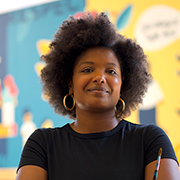
Terresa A. Moses
Graphic Design
College of Design, Twin Cities
Exploring Black liberation through design
Terresa A. Moses is a community-engaged scholar who uses applied research and creative works to intentionally intersect three areas of expertise, all of which are centered in Black liberation and anti-racism: 1) design curriculum and pedagogical approaches, 2) community building and abolitionist organizing, and 3) empowering Black women. Some of her work includes her solo exhibition, Umbra, her community distro project, Stop Killing Black People, her applied research project, Project Naptural, and her co-created curriculum and framework, Racism Untaught. She has published two books, Racism Untaught and An Anthology of Blackness, in addition to national and international recognition in her field.
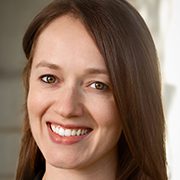
Hannah Neprash
Health Policy and Management
School of Public Health, Twin Cities
Toward a more efficient and resilient health care system
Hannah Neprash is a health economist whose research focuses on the delivery and financing of health care. As the expense and complexity of American health care continues to grow, Dr. Neprash works to build a more efficient and resilient health care system. Her research studies new threats (cyberattacks in health care), persistent challenges (public insurance reimbursement design), and emerging opportunities (artificial intelligence in medicine). Dr. Neprash publishes in leading medical, clinical, and economics journals. Her work frequently receives local and national news coverage, in addition to attention from policymakers.
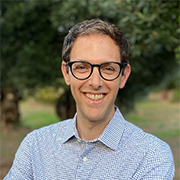
Benjamin Toff
Journalism and Mass Communication
College of Liberal Arts, Twin Cities
Growing indifference and distrust in news and how journalists can respond
Benjamin Toff studies news audiences in the contemporary media environment. He is the leading expert on news avoidance, the subject of a co-authored book (2023), and previously led the most extensive, international study to date on trust in news as a fellow at the University of Oxford. His work grapples with both the political implications of the public’s growing disconnection from news and its impact on the sustainability of the industry. He is also Director of the Minnesota Journalism Center, where he is working on advancing applied projects partnering with local news outlets to test the effectiveness of strategies designed to rebuild relationships with the public.
2023 Award Recipients
2023 Award Recipients
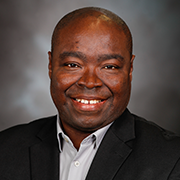
George Annor
Food Science and Nutrition
College of Food, Agricultural, and Natural Resource Sciences, Twin Cities
Characteristics of new and novel cereal, protein, and oilseed crops
George Annor’s research focuses on components of cereals and grains and how they are affected by breeding, agronomical practices, and nonthermal processing techniques. With faculty in the Department of Agronomy and Plant Genetics, he is working to explore the food and functional characteristics of new and novel cereal, protein, and oilseed crops. As an example, he developed a method to rapidly screen large numbers of samples for wheat gluten quality at early stages of wheat variety development. He also collaborates on breeding programs focusing on oats and corn, and is working on potential uses of ingredients made from intermediate wheatgrass (Kernza), a crop known for producing ecosystem services.
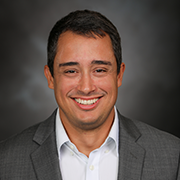
Luciano Caixeta
Veterinary Population Medicine
College of Veterinary Medicine, Twin Cities
Towards dairy sustainability by improving the health of dairy cows
Luciano Caixeta is an animal health researcher who focuses on improving the health of dairy cows with the ultimate goal to help feed the ever-growing world population. His research focuses on the period around parturition of dairy cows. During this period, cows have a considerable risk of metabolic disorders and infectious diseases. Dr. Caixeta combines basic and applied research to describe the physiological adaptations of dairy cows under metabolic stress. With his research, Dr. Caixeta strives to develop practical intervention strategies to decrease the use of antimicrobials in animal agriculture and increase farm sustainability through improved animal health. He communicates his findings broadly, through peer-reviewed manuscripts, presentations at conferences and working directly with farmers.
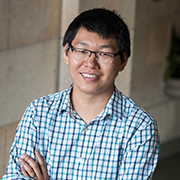
Yuan (Daniel) Cheng
Humphrey School of Public Affairs, Twin Cities
Reimagining Government-Nonprofit Relations and Bridging the Research-Practice Gap
Yuan (Daniel) Cheng is an outstanding scholar in the field of public and nonprofit management and has an international reputation for his interdisciplinary research in the areas of government-nonprofit relations, coproduction, and cross-sector collaboration. He is the managing editor of Public Administration Review and board member of the Minneapolis Parks Foundation. In close collaboration with governmental and community organizations, Dr. Cheng is currently embarking on new research directions to better understand the implementation of evidence-based practices in government, the policy impacts of academic research, and how to design more inclusive public sector grant-making programs.
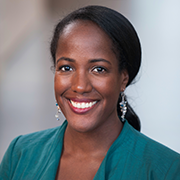
Audrey Dorélien
Humphrey School of Public Affairs, Twin Cities
Population, Health, and Environment
Audrey Dorélien is a population health researcher. She studies the impacts of climate change and infectious disease exposure on maternal and child health. She also studies how human behavior and population dynamics affect the spread and severity of infectious diseases. She describes demographic and health patterns and attempts to identify the causal factors responsible for these patterns. She uses secondary data from household surveys and vital records in novel ways, and often links these datasets with climate, contextual, and infectious disease data. Her work is global in scope and has been published in leading demography and population health journals.
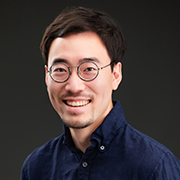
Peter K. Kang
Earth and Environmental Sciences
College of Science and Engineering, Twin Cities
Using the subsurface for the benefit of society
Improved understanding of flow processes in the subsurface is essential for addressing global water, energy, and climate crisis. Peter Kang and his group combine a range of methods (lab and field experiments, numerical simulations, and machine learning) to investigate reactive transport in porous media with applications in geologic carbon sequestration, enhanced geothermal systems, and groundwater management and remediation. He mentors a large team of students and post-docs, and publishes in the top journals in his field. Peter’s group actively collaborates with state hydrogeologists to address pressing groundwater issues in Minnesota, and also with high school teachers for K-12 education
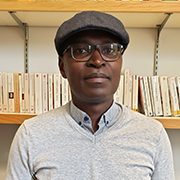
Christian Uwe
Cultural Studies and Comparative Literature
College of Liberal Arts, Twin Cities
Reading and shaping our political lives with literature
Christian Uwe’s scholarship joins together literature, semiotics, and philosophy to investigate contemporary forms of cultural and political existence. Drawing particularly on sub-Saharan, Caribbean, and French literatures, his research proposes a comparative examination of crises such as contemporary afterlives of the colonial project, environmental degradation, migration, and attendant geopolitical conflicts. His work, which has been described as “exquisitely intellectual” and “truly impressive”, includes two books, Le Discours choral (2017), on the influential works of Martinican intellectual Édouard Glissant, and L’Archive paradoxale (2022), on contemporary sub-Saharan novels. He is currently working on a book-length critique of the politics of Difference from the perspective of African and Caribbean thinkers.

Elizabeth Wrigley-Field
Sociology
College of Liberal Arts, Twin Cities
New ways to understand racial inequity in disease and death
Elizabeth Wrigley-Field studies racism and mortality in the United States in two settings: the early twentieth century and the Covid-19 pandemic. Some of her work puts mortality inequities into new perspective with surprising comparisons; for example, she showed that, during the Covid-19 pandemic, white mortality was still not as high as Black mortality has been every year, long before the pandemic. She also helped lead an award-winning community Covid-19 vaccination program (based in Minneapolis’s Seward neighborhood). Her work has been widely covered in national and local media and has won more than a dozen national and international awards.
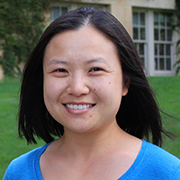
Ya Yang
Plant and Microbial Biology
College of Biological Sciences, Twin Cities
Functional phylogenomics of plants
Ya Yang is recognized nationally and internationally as one of the top researchers working in the field of plant functional phylogenomics—a field of molecular evolution that utilizes genome sequences to analyze and reconstruct evolution. In addition to her impressive track record in funding, scholarship, and teaching, Dr. Yang also serves as the curator of plants for the University of Minnesota Herbarium at the Bell Museum of Natural History. Dr. Yang and her lab members are active participants in public engagement and outreach through the Bell Museum, ranging from summer camps to interactive demonstrations on carnivorous plants and plant pigments.
2022 Award Recipients
2022 Award Recipients
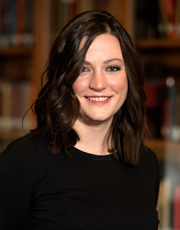
Valerie Belair-Gagnon
Journalism and Mass Communication
College of Liberal Arts, Twin Cities
Rebuilding Journalism
Valérie Bélair-Gagnon’s publicly engaged and empirical research has made contributions to the understanding of digital innovation and engagement in journalism. She studies digital media as structuring conditions of journalistic work, including how old and new actors adapt and respond to change in digital innovation, and the cultural forces of change in news organizations and the news industry. She is co-editor of Journalism Research That Matter (Oxford U Press, 2021), author of Social Media at BBC News (Routledge, 2015), and co-author of The Paradox of Connection: How Digital Media Transforms Journalistic Labor (Illinois U Press, forthcoming 2022). She is currently working on a happiness in journalism project.
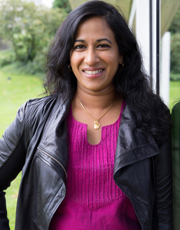
V.V. (Sugi) Ganeshananthan
English
College of Liberal Arts, Twin Cities
At the intersection of literature, history, and the news
V.V. Ganeshananthan is a fiction writer and essayist who writes about Ilankai / Lankan Tamil communities and the Sri Lankan civil war. Her debut novel, Love Marriage, was longlisted for the Women's Prize and named one of The Washington Post’s Best of 2008. Her work has appeared in The New York Times, Granta, Columbia Journalism Review, and Best American Nonrequired Reading, among others. She co-hosts the Fiction/Non/Fiction podcast, which is about the intersection of literature and the news. She has taught classes on novel writing, plot and revision, and political literature. Her forthcoming novel, Brotherless Night, will be published in January 2023.
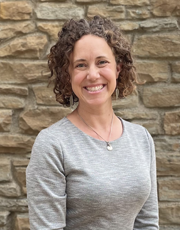
Carrie Henning-Smith
Health Policy and Management
School of Public Health, Twin Cities
Advancing Health Equity and Social Well-Being for Rural Residents
Carrie Henning-Smith is a public health researcher who focuses on health equity and the structural drivers of health for rural populations, with an emphasis on mental health and social well-being for older adults and people with historically marginalized identities. In her work, she uses a range of methodologies to examine the role of policy, geography, and community context in shaping health outcomes, including loneliness and social isolation. Dr. Henning-Smith prioritizes community input and engagement in her work, and disseminates her findings broadly, through peer-reviewed manuscripts, but also through media interviews, OpEds, policy briefs, and other publicly-available outlets.
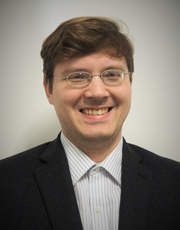
Alexander Opitz
Biomedical Engineering
College of Science and Engineering, Twin Cities
Non-invasive brain stimulation technologies for brain disorders
Alexander Opitz’s research focuses on developing non-invasive brain stimulation technologies for brain disorders. Dr. Opitz has a particular interest in the underlying physics and physiology of transcranial magnetic and electric stimulation. Research in his lab spans from computational modeling of electric fields and their effect on neurons to electrophysiological recordings of brain activity in animals and humans. His lab is further developing closed-loop stimulation technologies to improve the effectiveness of brain stimulation. Dr. Opitz organizes the annual “Non-Invasive Brain Stimulation Workshop” targeted at researchers interested in advancing their tool kit in non-invasive brain stimulation methods.

Hyun Soo Park
Computer Science and Engineering
College of Science and Engineering, Twin Cities
AI to measure human and animal behaviors
Paragraph: Hyun Soo Park is a computer vision researcher who is passionate about developing an AI system that can decode implicit codes of our non-verbal social signals, e.g., gaze direction, facial expression, and body gestures, that plays a major role in our daily communications. His lab designs a massive sensing infrastructure to measure the subtle social signals in three dimensions, develop a computational model to analyze and forecast the behaviors, and render them in an immersive technology to enable authentic social telepresence.
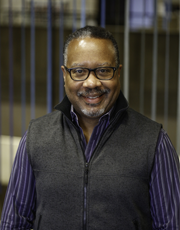
Talvin Wilks
Theatre Arts and Dance
College of Liberal Arts, Twin Cities
Rootedness in scholarship and performance practice
Talvin Wilks is an acclaimed director, dramaturg and playwright with an almost 30 year professional career. For Wilks, politics and history become the rooted foundation in which to examine, by means of drama, identities continually divided by race, class, gender and sexuality and have informed his original works and collaborations which have reached Broadway, off-Broadway and national stages. His strength in these multi-faceted areas of creativity and performance is what makes him an inspiring and compassionate team builder, thoughtful, and highly skilled master-teacher, a generous mentor, and an intrepid advocate for undergraduate students’ intellectual and artistic endeavors.
2021 Award Recipients
2021 Award Recipients
Emilyn Alejandro
Integrative Biology and Physiology
Medical School, Twin Cities
Fetal origins of obesity and type 2 diabetes
Type 2 diabetes is the most common chronic disease affecting about 420 million people worldwide. To stop the vicious cycle of the disease, Emilyn Alejandro’s team combine integrative approaches and using both animal models and human studies to uncover the role of nutrient-sensor protein mTOR and OGT in the placenta and pancreas, to ultimately predict individuals who are at risk for obesity and diabetes and to find ways to increase insulin secretion to improve clinical interventions for patients with diabetes. The team is shedding new light on the fetal origins of pancreatic-β-cell dysfunction, obesity, and diabetes.
Samira Azarin
Chemical Engineering and Materials Science
College of Science & Engineering, Twin Cities
Engineering healthy and diseased tissue environments to develop novel therapies
Samira Azarin studies the role of the cell microenvironment in the development and function of healthy and diseased tissues to enable fundamental insights into biological mechanisms, develop model systems for drug discovery, and design biomaterials that direct the behavior of cells and tissues in the body. A major focus of her research program is to combine cell and tissue engineering with novel biomaterial platforms to address current therapeutic roadblocks in the treatment of cancer, including metastatic spread and drug resistance, with the aim of improving clinical outcomes for patients with any types of cancer.
Jeffrey Calder
Mathematics
College of Science & Engineering, Twin Cities
Continuum limits in machine learning and data science
Jeff Calder is a mathematician whose research involves using continuum mathematical analysis, including partial differential equations and the calculus of variations, to study discrete problems at the foundations of machine learning and data science. The goals of his research are to further our understanding of existing algorithms, and to develop new, more efficient algorithms founded on strong theoretical principles with provable performance guarantees. He has made foundational contributions to many problems, including the sorting of multivariate data with data peeling algorithms, and graph-based semi-supervised learning with limited data.
Trinity Hamilton
Plant and Microbial Biology
College of Biological Sciences, Twin Cities
Using modern microbial ecosystems to unlock Earth’s past, present, and future
Trinity Hamilton is an environmental and molecular microbiologist. Her research examines microbial photosynthesis and global biogeochemical cycles throughout Earth’s history. Her research combines genomic, functional, and evolutionary studies of complex microbial ecosystems to answer outstanding questions in microbial ecology and evolution in the face of changing environmental conditions, and has been applied to places ranging from Yellowstone hot springs to Minnesota lakes to Greenland glaciers. Hamilton’s research has informed outstanding questions regarding the physiology of Earth’s oldest phototrophs and the contribution of these organisms to biogeochemical cycling in Earth’s past, present, and future.
Douglas E. Kearney
English
College of Liberal Arts, Twin Cities
Ways of reckoning: Critical Black poetics
Douglas Kearney is an award-winning poet and critic working on / with / through Black aesthetics and performance. His research engages literature, music, and entertainment with foci in interdisciplinary artistic praxes, the grotesque, and the crossroads where antiblack violence meets spectacle. His books include Mess and Mess and, Buck Studies, and Sho. A librettist, Kearney’s most recent operas are Crescent City, Sweet Land, and Comet / Poppea (commissioned by the American Modern Opera Company). His courses range from a lab for developing new poetic forms to seminars on genre agnostic writing.
Bonnie Keeler
Center for Science, Technology, and Environmental Policy
Humphrey School of Public Affairs, Twin Cities
What is clean water worth? In pursuit of more equitable, efficient, and effective water policy
Bonnie Keeler works at the intersection of sustainability science and environmental economics, with particular expertise in water policy. Keeler’s research investigates the distribution of environmental benefits and burdens, the social costs of water pollution, and the dynamics of social-ecological systems. Keeler is the co-director of the CREATE Initiative, a community-engaged research project that aims to leverage the resources of the research university in service to the needs and priorities of environmental justice organizations in urban watersheds. Keeler also directs the Beyond the Academy network - a coalition of university leaders seeking to reform academic models to promote actionable, engaged scholarship on sustainability.
Esther Krook-Magnuson
Neuroscience
Medical School, Twin Cities
Illuminating neuronal networks in health and disease
Esther Krook-Magnuson is a neuroscientist seeking to improve our understanding of how cells interact within a network, how networks interact with each other, and the physiological roles of neuronal populations. Neuronal networks, diversity, and specificity of function are important to both physiological processes and neurological disorders. The Krook-Magnuson lab utilizes models of temporal lobe epilepsy and essential tremor, and a range of techniques including electrophysiology, optogenetics, imaging, and behavioral experiments to address fundamental questions in the field of neuroscience.
Olihe Okoro
Pharmacy Practice and Pharmaceutical Sciences
College of Pharmacy, Duluth
Addressing structural inequities to eliminate health disparities
Olihe Okoro is a community-engaged scholar whose research efforts aim to investigate and address structural inequities that drive health disparities. Dr. Okoro’s work is unique in that it seeks to understand the intersections of social determinants of health with race/ethnicity and sociocultural context, and the implications for health care and health outcomes. Her work continues to inform interventions to improve health outcomes in Black communities. Dr. Okoro is currently working with the African heritage community to address COVID-19 disparities and using findings from a community needs assessment to address long-standing inequities associated with disparities in health care and health outcomes.
2020-21 to 2022-23
Rachel Hardeman
Division of Health Policy and Management
School of Public Health, Twin Cities
Reproducing race: the impact of structural inequity on reproductive health
Rachel Hardeman is a Reproductive Health Equity Researcher whose work has significantly shifted the field's ability to name and operationalize structural racism as a fundamental cause of health inequities. Furthermore, her research and scholarly activities have made health inequities due to racism more visible and offered empirical evidence as to the ways that public health might intervene on the growing racial inequities in health and health care in our country through health care systems change, medical education and policy. Currently Professor Hardeman is investigating ways to quantitatively measure structural racism and its impact on health outcomes like maternal morbidity and mortality where Black women are 3-4 times more likely to die in the United States.
Maggie Hennefeld
Cultural Studies and Comparative Literature
College of Liberal Arts, Twin Cities
Death from laughter, female hysteria, and early cinema
Maggie Hennefeld is a feminist comedy theorist and international silent film curator. Her award- winning book, Specters of Slapstick and Silent Film Comediennes (Columbia UP, 2018) reveals the forgotten history of female performers in early slapstick film comedies. She is an editor of the journal Cultural Critique and co-editor of two volumes, Unwatchable (Rutgers UP, 2019) and Abjection Incorporated (Duke UP, 2020). She is currently writing a book about the history of women who allegedly died from laughing too hard.
Timothy Kowalewski
Mechanical Engineering
College of Science and Engineering, Twin Cities
Fortifying the Art of Surgery with Engineering Science
Dr. Kowalewski’s research aims to create new solutions to long-standing problems in surgery. He discovered methods that quantify and improve the skill of a surgeon accurately, inexpensively, and in a manner that can scale to millions of procedures annually. Due to his startup company in this area (acquired by Johnson and Johnson) these methods see daily use throughout several hospital systems. He is now creating safer surgical robots that magnify the capabilities of surgeons.
Ryan Langlois
Microbiology and Immunology
Medical School, Twin Cities
Immune responses to viral infections
The immune system is the major line of defense against infection. Ryan Langlois uses innovative approaches to study immune responses to viral infections and vaccines. Viruses continue to emerge from animal reservoirs driving novel pandemics in humans. He has also designed new model systems that track viruses from reservoir through transmission into new hosts. By perturbing components of the immune system, the Langlois lab uncovers how viruses make the species jumps and evolve leading to new pandemics.
Kate Lockwood Harris
Communication Studies
College of Liberal Arts, Twin Cities
Transforming organizational responses to violence
How are violence and communication related? This question guides Dr. Harris’s internationally recognized research on assault, sexual consent, and systemic racism. She analyzes how everyday interactions, such as two people discussing a traumatic experience, sustain or transform institutional inequities. She also assesses how organizations’ decisions and policies impact abusive interpersonal encounters. In 2019, Oxford University Press published her first book, Beyond the Rapist: Title IX and Sexual Violence on US Campuses.
Lana Yarosh
Computer Science and Engineering
College of Science and Engineering, Twin Cities
Designing computing systems to enhance social relationships
Lana Yarosh is a Computer Scientist with a focus on Human-Computer Interaction and Social Computing. Her research lab has made significant contributions to the empirical understanding and design of computing systems that enhance social relationships to create stronger families, support individual health and wellbeing, and provide a stage for personal growth. Lana’s scholarship is characterized by interdisciplinary, community-engaged, and participatory methods to create novel technologies that meet our needs as a society.
2019-20 to 2021-22

Tony Low
Electrical & Computer Engineering
College of Science & Engineering
Light-matter interactions in two-dimensional atomic crystals
Tony Low has made significant contributions to the fundamental understanding of plasmonic and optoelectronic properties in the exciting class of atomically thin two-dimensional materials. His internationally recognized theoretical research provides original blueprints on the use of these materials to manipulate light, particularly in the mid-infrared spectrum. These materials offer the promise of key breakthrough applications in the mid-infrared spectrum, such as nanophotonics, biosensing, beam forming, and thermal detectors.
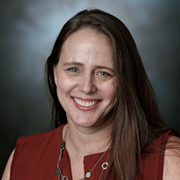
Annie-Laurie McRee
Pediatrics
Medical School
Improving health by promoting adolescent vaccination and preventive services
Widespread vaccination against human papillomavirus has the potential to prevent several types of cancer, yet many young people are not receiving it. Annie-Laurie McRee’s research centers on addressing this gap. She seeks to advance behavioral, public health, and health services approaches to increasing adolescent vaccination and improving adolescents’ receipt of preventive services, particularly around sexual and reproductive health. Her scholarship is characterized by close collaboration with interdisciplinary colleagues and has helped shape current best practices in the field.
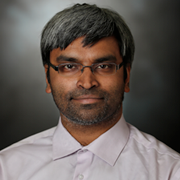
Soumya Sen
Information & Decision Sciences
Carlson School of Management
Designing systems and pricing solutions for a sustainable Internet ecosystem
Advances in information technologies, such as mobile, cloud, and AI, hold promise for transforming our society. But their successful implementation depends on our ability to holistically address technical, economic, and social issues. Sen’s interdisciplinary research accounts for these factors in designing IT systems and incentive schemes that help businesses and users make optimal decisions. His pioneering work on “smart data pricing” explores ways to reduce Internet congestion and realize affordable data plans for wider access.
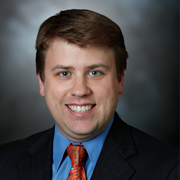
David M. Vock
Biostatistics
School of Public Health
Right treatment for the right patient at the right time
David Vock develops methods for causal inference — a set of statistical tools used to determine the effect of an intervention from observational data – and dynamic treatment regimes, which are used to evaluate and advance personalized treatment strategies. His work has contributed to understanding the survival benefit of lung transplantation and he developed novel statistical methods for evaluating approaches to distributing cadaveric organs to those awaiting transplantation. He is currently developing methodology for tobacco regulatory science to gauge the impact of potential product regulation.
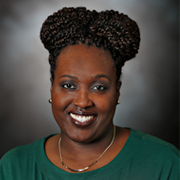
Terrion L. Williamson
African American & African Studies
College of Liberal Arts
Social life, serialized death, and engaged black feminist praxis
Terrion Williamson is an interdisciplinary black feminist scholar. A native of Peoria, Illinois, her first book, Scandalize My Name: Black Feminist Practice and the Making of Black Social Life (2017) uses her hometown as a primary site of interrogation. Currently, she serves as the founding director of the Black Midwest Initiative and is working on both an edited volume about blackness in the Midwest and a book titled We Cannot Live Without Our Lives, a study of black women and serial murder in the U.S.
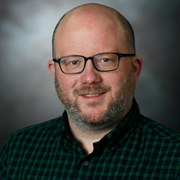
Jason J. Wolff
Educational Psychology
College of Education & Human Development
Pre-symptomatic detection and intervention for autism spectrum disorder
Early intervention can dramatically improve outcomes for children with autism. However, a significant challenge has been the identification and treatment of such children as early as possible. Wolff’s research addresses this issue through the prospective, longitudinal study of early behavioral and brain development. Currently, he is investigating precursors of maladaptive sensory and repetitive behaviors associated with autism, developing novel approaches to infant intervention, and refining ground-breaking methods to detect autism in infancy.
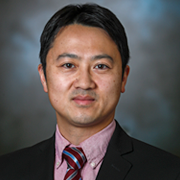
Rui Zhang
Pharmaceutical Care & Health Systems
College of Pharmacy
Discovering pharmacovigilance using artificial intelligence on biomedical big data
Dr. Zhang investigates how artificial intelligence can help discover novel pharmacovigilance knowledge from biomedical big data. He has created an innovative translational informatics framework, which enables the generation of hypotheses about clinical issues by mining the biomedical literature and by validating the findings in electronic health record data from large healthcare systems. This signal-generating system accelerates the rate of recognizing new patterns (e.g., drug-supplement interactions, pharmacogenomics-drug relationships) and consequences for health care.
2018-19 to 2020-21
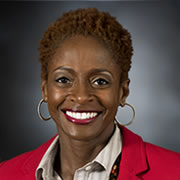
Daheia J. Barr-Anderson
Kinesiology
College of Education & Human Development
Daheia Barr-Anderson's research focuses on physical activity, sedentary behaviors, and obesity prevention in children and adolescents, especially African-American females. Her research examines multi-level factors that influence physical activity among youth and is testing the efficacy of community- and family-based interventions designed to increase physical activity and improve nutrition among sedentary individuals. Professor Barr-Anderson is also exploring how factors within the home activity and food environments interact with individual and interpersonal factors to contribute to overweight and obesity in children, adolescents, and their families.
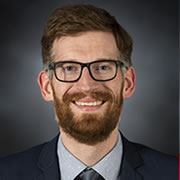
Gordon Burtch
Information & Decision Sciences
Carlson School of Management
Gordon Burtch does pioneering work on the topic of online crowdfunding. His research explores and quantifies the influence and economic impact of social mechanisms on individual participation in, and contributions toward, online venues. His work has explored the antecedents and economic consequences of peer influence and individual anonymity amongst contributors, as well as the impact of supplying users with website anonymity features. His work on user-generated content (UGC) has explored the impacts of platform policy and design interventions that interact with social mechanisms, like social norms and social presence, to influence the volume and characteristics of UGC, such as online reviews.
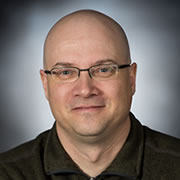
David J. Flannigan
Chemical Engineering & Materials Science
College of Science & Engineering
David Flannigan is the leading inventor and pioneer of time-resolved, ultrafast electron microscopy (UEM), a technique that is revolutionizing our understanding of the atomic scale structure of materials. One of his important breakthroughs is the direct imaging of lattice phonons (vibrations) in semiconductors. Phonons are responsible for acoustic and thermal energy transport in materials. Flannigan’s UEM allows them to be visualized for the first time, opening up the possibility of directly probing how nanoscopic defects such as dislocations, inclusions, and grain boundaries – which are ubiquitous in real materials – impact the flow of energy.
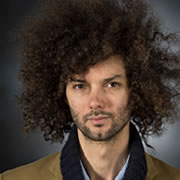
Michael Gallope
Cultural Studies & Comparative Literature
College of Liberal Arts
Michael Gallope has established a distinguished record of academic achievement for his work in the areas of music, philosophy, and the cultural history of the avant-garde. Professor Gallope’s recent book, Deep Refrains: Music, Philosophy, and the Ineffable (2017), has been described as an “impressive tour de force” and as reframing “music's contribution to critical discourse and humanistic inquiry.” By examining modern European philosophers’ writings on music in a way that spans traditional boundaries, Professor Gallope’s work elucidates the surprising centrality of music and sound to twentieth-century critiques of modern life.
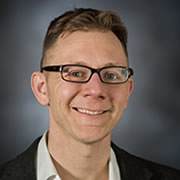
William C. K. Pomerantz
Chemistry
College of Science & Engineering
Will Pomerantz’s research addresses a longstanding question in chemical biology, which is whether protein-protein interactions (PPIs), which play an essential part in biological processes and human disease, can be affected by drugs. His research program seeks to understand the details of PPIs, with a focus on improving our knowledge of macromolecular recognition events. Professor Pomerantz uses a multi-pronged approach to inhibit PPIs and develop new synthetic molecules to both image and disrupt harmful PPIs, with applications to the treatment of cancer.
2017-18 to 2019-20
|
Rafael Fernandes John R. Fieberg Tania Mitchell Francis X. Shen Chun Wang |
Physics & Astronomy/CSE Fisheries, Wildlife & Conservation Biology/CFANS Organizational Leadership, Policy & Development/CEHD Law/Law School Psychology/CLA |
2009-10 to 2011-12
|
Jacques Finlay Timothy Griffin Nathan Kuncel Frances Vavrus Hui Zou |
Ecology, Evolution & Behavior/CBS Biochemistry, Molecular Biology & Biophysics/CBS Psychology/CLA Organizational Leadership, Policy & Development/CEHD Statistics/CLA |
2008-09 to 2010-11
|
Michael Gaudio Joseph Gaugler Lee Penn Kathleen Vohs Yuhong Xiang |
Art History/CLA Nursing Chemistry/IT Marketing & Logistics Management/CSOM Psychology/CLA |
2007-08 to 2009-10
|
Wilma Koutstaal Chris Leighton J. Michael Oakes Marco Peloso Andrew Scheil |
Psychology/CLA Chemical Engineering & Materials Science/IT Epidemiology & Community Health/Public Health Physics & Astronomy/IT English/CLA |
2006-07 to 2008-09
|
Ezra Miller Ben Munson Beth Stadler Kathleen Thomas David Treuer George Weiblen |
Mathematics/IT Speech-Language-Hearing Sciences/CLA Electrical & Computer Engineering/IT Institute of Child Development/CEHD English/CLA Plant Biology/CBS |
2005-06 to 2007-08
|
Michael Goldman Krishnan Mahesh Fernando Porte-Agel Claudia Schmidt-Dannert Theodore Schoen |
Sociology/CLA Aerospace Engineering/IT Civil Engineering/IT Biology, Molecular Biology, & Biophysics/CBS Music/UMD |
2004-05 to 2006-07
|
Paulo Kufiji Erika Lee Tian-jun Li Melanie Wall |
Neuroscience/Medical School History/CLA Mathematics/IT Biostatistics/Public Health |
2003-04 to 2005-06
|
Paul Crowell Robert Krueger Kariuki Njenga Yong-Zhong Quian Kirt Wilson |
Physics & Astronomy/IT Psychology/CLA Veterinary & Biomedical Sciences/VetMed Physics & Astronomy/IT Communication Studies/CLA |
2001-02 to 2003-04
|
Cathy Carlson Wei Chen Mats Heimdahl Richa Nagar Chris Uggen |
Veterinary Population Medicine/VetMed Cancer Center/AHC Computer Science /IT Women's Studies /CLA Sociology/CLA |
